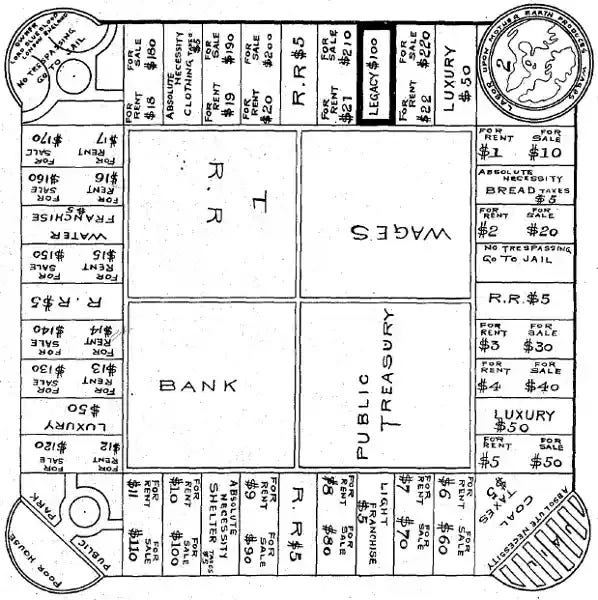Why Monopoly Should Be Retired from Family Game Nights
Written on
The Downside of Monopoly
Admitting it might be hard, but I, as an adult, struggle to engage in a game of Monopoly. The last time I attempted to play, I found myself in tears, watching as the game turned me into a sore loser. I was left pondering why this game, meant for enjoyment, consistently erodes the spirit of fun. And, as it turns out, I’m not alone in my feelings.
This game, which is often associated with family bonding, has led to countless disputes, with players storming out after flipping the board in frustration. In extreme cases, it has even caused rifts within families. So, what exactly makes Monopoly so uniquely disheartening compared to other games?
The Origins of Monopoly

Elizabeth Magie's initial design for the 'Landlord's Game,' patented in 1903. Photo: United States Patent and Trademark Office.
Issue #1: The Game's Political Satire
Monopoly is not just a game; it serves as a form of political commentary. Originally created in 1903 by Elizabeth Magie, the precursor to Monopoly was intended to critique the monopolistic accumulation of wealth. During a time of significant wealth inequality, she sought to reflect her progressive ideals through an engaging format.
Magie’s vision was to create a game that was not only fun but also relevant to societal issues. Her original design featured two sets of rules: one that encouraged monopolization and another that promoted shared wealth. The latter, however, failed to capture players' interest—perhaps because a game where everyone wins lacks the excitement of competition.
The human inclination toward domination and the fear of inadequacy permeates this 40-space economic journey. The game's elements, such as the frustrating 'Tax' square, were inspired by her favorite economist, Henry George, emphasizing a critique of wealth distribution.
Issue #2: The Cutthroat Objective
The primary aim of Monopoly is to bankrupt your opponents, establishing a monopoly on the board. Unlike other games, such as the beloved Settlers of Catan, where players can progress concurrently towards a collective goal, Monopoly's format means that one person's success hinges on another's failure.
In contrast, games that promote simultaneous progress tend to foster a friendlier environment, making them more enjoyable for families.
Issue #3: The Need for Continuation
Monopoly forces players to endure the game until its bitter conclusion, even when it's clear they are destined to lose. This drawn-out experience can feel punishing, unlike chess, where players can resign upon realizing their fate.
Issue #4: Lack of Catch-Up Mechanics
Monopoly lacks mechanisms that allow losing players to recover, resulting in a skewed experience where early luck can dictate the outcome. With resources mostly distributed in the initial rounds, the game often drags on with a predetermined ending.
Issue #5: Emotional Attachment to Game Pieces
There’s a peculiar satisfaction in owning prime properties like Illinois Avenue or Boardwalk. Players often develop a strong attachment to their game pieces, which can lead to heightened emotions when they feel threatened by opponents. The emotional stakes can escalate, making it hard to enjoy the game when you perceive others as threats.
Ultimately, Monopoly can become overwhelming. It's a game that was designed to test patience and can drive players to their limits. After numerous frustrating experiences, I’ve decided it's time to retire Monopoly from my game nights.
The first video, "Monopoly is a Bad Game | Why People Hate Monopoly," dives into the reasons many players feel disillusioned by this classic game, highlighting its negative aspects.
The second video, "Why You Should NEVER Play MONOPOLY Again," discusses the detrimental effects of the game on relationships and the overall gaming experience.